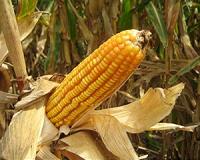 |
Washington (AFP) Sept 5, 2010 A new food fight has stirred up the locavore movement, which promotes eating of local products, after fresh challenges to the assumption that the practice promotes environmental sustainability. The locavore movement, which has been gaining steam rapidly since emerging in California in 2005, is now boiling over following a commentary last month suggesting that the "math" underpinning the practice is flawed. Author and journalist Stephen Budiansky stirred up the pot with a piece appearing in the New York Times arguing that locavores are mistaken on the notion that local food is better for energy conservation and the environment. "Words like 'sustainability' and 'food-miles' are thrown around without any clear understanding of the larger picture of energy and land use," Budiansky wrote. Budiansky has his own vegetable garden, but argues that on a commercial scale, large farms are far more energy-efficient than small ones and that transportation energy costs are often overstated by local food advocates. "It takes about a tablespoon of diesel fuel to move one pound of freight 3,000 miles by rail," says Budiansky, who calls the transportation fuel costs "a negligible amount in the overall picture." "The real energy hog, it turns out, is not industrial agriculture at all, but you and me. Home preparation and storage account for 32 percent of all energy use in our food system, the largest component by far," he said in the commentary titled "Math Lessons for Locavores." Budiansky added that "eating food from a long way off is often the single best thing you can do for the environment, as counterintuitive as that sounds." He said that "the relative pittance of energy we expend on 'industrial' agriculture... pays huge environmental dividends which the organic and local gurus always ignore." The comments heated up the debate about the locavore movement, which has been gaining ground among groceries, restaurants and consumers in the United States and elsewhere, based on a philosophy of using more foods produced closer to home. Elanor Starmer of the watchdog group Food & Water Watch says Budiansky misses the point, and that locavores want more diversity in the facing of growing concentration of the food chain in the hands of multinational companies. "When I buy local food, energy use is not the driving rationale (no pun intended)," Starmer says in a blog posting. "I buy from a variety of local farms when at all possible because if I don't, I will probably be eating from a stream of food that has passed through the hands of a tiny number of massive companies." Kerry Trueman, cofounder of the website EatingLiberally, points out that "energy efficiency is only one small part of the equation when you add up the reasons to buy local." She said factors include flavor and nutrition, support for ecological farming practices, avoidance of pesticides and more humane treatment of livestock and workers. Dave Love of the Johns Hopkins University Center for a Livable Future, was incensed by Budiansky's argument. "It is difficult to be in favor of a farming approach that relies upon mono-cropping using genetically modified seeds and synthetic fertilizers," he said. "Why pick on locavores? Because when they seek local food, they may also be seeking to buy organically grown or raised foods, from small to mid-sized farms, which can impact entrenched agribusiness interests." But James McWilliams, a fellow in the Agrarian Studies Program at Yale University, said Budiansky echoes his own views that the locavore movement relies on flawed logic. "The recognized benefits of a local foodshed are numerous, but -- while small might be beautiful -- small is also expensive and, in turn, prone to exclusivity," says McWilliams, author of "Just Food: Where Locavores Get It Wrong and How We Can Truly Eat Responsibly." Jennifer Wilkins, a faculty member at the Cornell University College of Human Ecology, says the strict economic and environmental calculations can be complex but that diversity in the food supply "tends to increase stability and resilience." She said that recalls and accidents in the food supply can highlight problems when a small number of producers dominate. "When something goes wrong in a highly concentrated and specialized system, as we are reminded by the recent recall of shell eggs, the consequences and costs related to public health, economic loss, food waste, and consumer confidence are on a much more spectacular scale and much more widespread," she said.
Share This Article With Planet Earth
Related Links Farming Today - Suppliers and Technology
 Study Predicts Massive Impact Of Drought Tolerant Maize In Africa
Study Predicts Massive Impact Of Drought Tolerant Maize In AfricaNairobi, Kenya (SPX) Sep 03, 2010 As climate change intensifies drought conditions in Africa and sparks fears of a new cycle of crippling food shortages, a new study finds widespread adoption of recently developed drought-tolerant varieties of maize could boost harvests in 13 African countries by 10 to 34 percent and generate up to US$1.5 billion in benefits for producers and consumers. "We need to move deliberately, but w ... read more |
|
| The content herein, unless otherwise known to be public domain, are Copyright 1995-2010 - SpaceDaily. AFP and UPI Wire Stories are copyright Agence France-Presse and United Press International. ESA Portal Reports are copyright European Space Agency. All NASA sourced material is public domain. Additional copyrights may apply in whole or part to other bona fide parties. Advertising does not imply endorsement,agreement or approval of any opinions, statements or information provided by SpaceDaily on any Web page published or hosted by SpaceDaily. Privacy Statement |